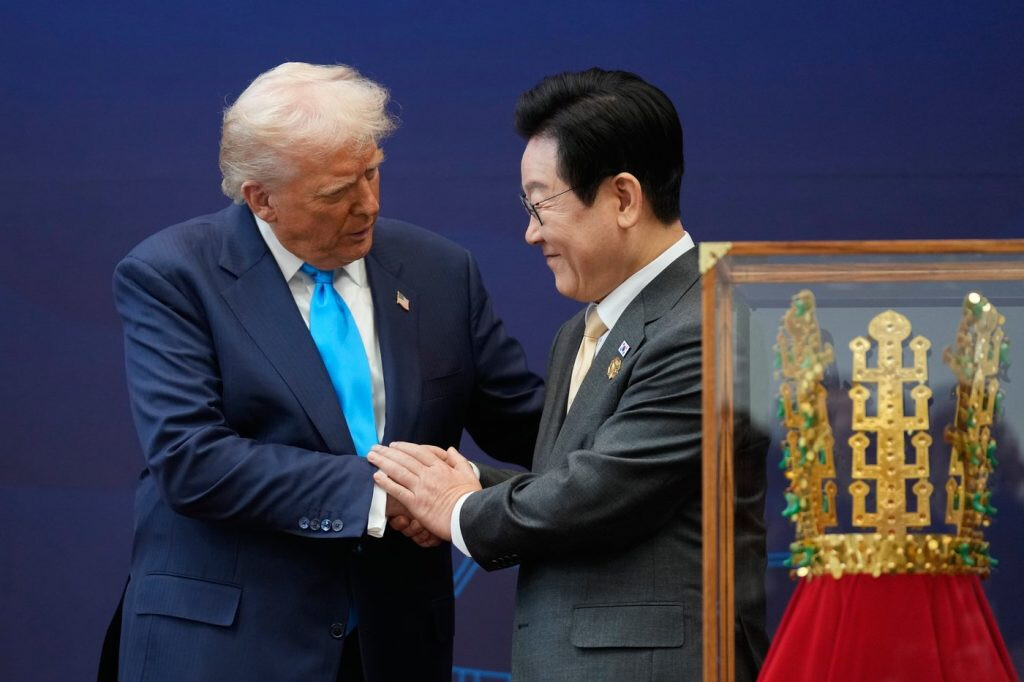
Gyeongju, South Korea – Presidents Lee Jae-myung of South Korea and Donald Trump of the United States reached a crucial agreement on the details of their protracted tariff negotiations on October 29, culminating in a deal that centers on a substantial $350 billion investment package from Seoul to Washington. The breakthrough, announced following their summit on the sidelines of the APEC meetings in Gyeongju, addresses the primary sticking point: the structure of the massive U.S.-bound investment fund.
Investment Breakdown and Disbursement
The total $350 billion financial commitment has been finalized as:
$200 Billion in Strategic Industry Investment Fund (Cash): This is a direct cash investment, a shift from Seoul’s initial proposal to largely utilize loans and guarantees.
$150 Billion for Shipbuilding Cooperation (MASGA Project): This component, dubbed "Make American Shipbuilding Great Again" (MASGA), will involve Korean-led investments and government-backed guarantees to boost the U.S. shipbuilding industry.
Crucially, to mitigate foreign exchange market instability in South Korea, the $200 billion cash investment will not be disbursed all at once. Instead, it will be paid in annual installments with a maximum cap of $20 billion, effectively stretching the payment period over at least 10 years. This payment structure will utilize a "Capital Call" mechanism, with funds being disbursed gradually based on specific project needs and milestones as requested by the U.S.
Profit-Sharing and Safeguards
The agreement incorporates a profit-sharing formula, mirroring the U.S.-Japan pact:
Initial Profit Split: Profits will be distributed 50:50 between South Korea and the U.S. until the original principal and interest are fully recovered by South Korea.
Post-Recovery Split: After the full recovery of principal and interest, the profit-sharing ratio will shift to 90% for the U.S. and 10% for South Korea.
To ensure the return on investment for South Korea, the two sides agreed on several key safeguards:
Profit-Sharing Adjustment: A Memorandum of Understanding (MOU) will allow South Korea to request an adjustment to the profit-sharing ratio if it is deemed unlikely that the principal and interest will be fully recovered within 20 years.
FX Market Safety Mechanism: An additional provision allows South Korea to request adjustments to the timing and amount of the annual $20 billion payment in the event of foreign exchange market instability.
Investment Oversight: While U.S. Commerce Secretary Howard Lutnick will chair the Investment Committee to determine investment projects and amounts, a Korean project manager will be included to ensure transparency and accountability. South Korea's Minister of Trade, Industry, and Energy, Kim Jung-kwan, will head a separate Consultative Committee, providing a mechanism for Seoul to object to unilateral investment decisions by Washington.
Broader Trade Context and Economic Impact
In return for this massive financial commitment, the U.S. will reduce its tariff on South Korean automobiles from the current 25% to 15%, matching the rate applied to Japanese imports. Additionally, the U.S. will grant most-favored-nation treatment for Korean pharmaceuticals and wood products, with some items like aircraft components receiving full tariff exemptions.
Presidential Chief of Staff for Policy, Kim Yong-beom, emphasized that the $20 billion annual cash payment is a manageable size that is not expected to shock the domestic foreign exchange market. He noted that the Bank of Korea had previously stated that an annual amount up to $20 billion could be covered using operational income from existing foreign currency assets, minimizing market impact.
However, the deal has drawn criticism from some quarters, who caution that the $20 billion annual outflow, which equates to about 35% of last year's annual trade surplus with the U.S. ($55.7 billion), represents a significant utilization of the country's foreign currency reserves. Analysts warn that continuous, large-scale foreign currency outflows could still strain the market and reduce the buffer against unexpected external shocks.
The government expects the detailed MOUs and fact sheets concerning the tariff agreement to be made public within the next two to three days.
[Copyright (c) Global Economic Times. All Rights Reserved.]






























